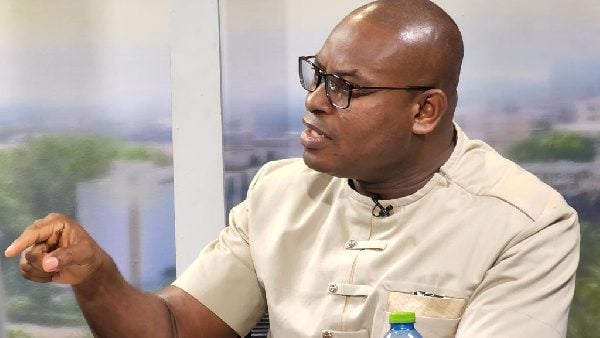The establishment of the Operation Recover All Loots (ORAL) committee by the ruling National Democratic Congress (NDC) in Ghana has sparked controversy, raising questions about its legality and efficacy in combating corruption. Richard Ahiagbah, the Director of Communications for the opposition New Patriotic Party (NPP), has been a vocal critic of the initiative, arguing that it lacks a legal foundation and duplicates the roles of existing anti-corruption institutions. He contends that the NDC, having come to power through democratic elections and sworn in under the 1992 Constitution, must operate within the bounds of the law and not resort to extralegal measures. Ahiagbah’s core argument rests on the assertion that the ORAL committee’s formation lacks parliamentary approval, rendering its operations potentially unlawful.
Ahiagbah questions the rationale behind establishing a five-member committee, chaired by North Tongu Member of Parliament Samuel Okudzeto Ablakwa, when various state entities are already mandated to address corruption-related issues. He cites existing bodies like the Commission on Human Rights and Administrative Justice (CHRAJ), the Economic and Organized Crime Office (EOCO), and the Office of the Special Prosecutor as examples of institutions equipped to handle corruption cases. By creating a parallel structure, Ahiagbah argues, the government risks undermining these existing mechanisms and creating confusion within the anti-corruption framework. He insists that strengthening these existing institutions would be a more effective approach to tackling corruption than establishing a new, potentially redundant committee.
Furthermore, Ahiagbah challenges the scope of ORAL’s mandate, particularly the claim of recovering “all loots.” He views this as an overreach, implying a presumption of guilt against individuals before any legal proceedings have taken place. He stresses the importance of due process and adherence to the rule of law in all investigations and prosecutions related to corruption. This, he argues, protects the rights of individuals and ensures that any actions taken against them are just and fair. Ahiagbah suggests that the government’s focus should be on strengthening the judicial system and supporting existing anti-corruption bodies to carry out their mandates effectively, rather than creating new structures that could potentially circumvent established legal processes.
Ahiagbah’s criticism extends to the operational modalities of ORAL, suggesting that the committee’s current approach could be viewed as an overstep of executive power. He emphasizes that the NDC government came to power through democratic elections, not through force, and therefore should govern within the confines of the law. He challenges the NDC to follow the proper legislative process if they intend to grant ORAL the necessary legal powers to carry out its assigned tasks. This, he suggests, would involve bringing the matter before Parliament for debate and approval, ensuring that the committee’s mandate is clearly defined and its operations are aligned with existing laws.
Ahiagbah’s assertions about the legality of ORAL are echoed by other legal experts, particularly those affiliated with the NPP. These experts argue that the committee lacks a clear legal basis and that its formation has not adhered to established constitutional procedures. This raises concerns about the potential for abuse of power and the undermining of the rule of law. They further argue that the establishment of ORAL could be perceived as an attempt by the government to exert undue influence on anti-corruption efforts, potentially politicizing the fight against graft. These concerns underscore the need for clarity regarding the committee’s mandate, powers, and operational procedures.
Despite the ongoing debate surrounding its legitimacy, the ORAL committee, led by Samuel Okudzeto Ablakwa, has commenced its operations. However, the controversy surrounding its formation continues to cast a shadow over its work, raising questions about the validity of its findings and any subsequent actions taken based on its recommendations. The challenge for the government is to address these concerns convincingly and demonstrate that ORAL will operate within the bounds of the law, respecting due process and upholding the principles of fairness and justice. Without such assurances, the effectiveness and credibility of the committee’s work will remain in question, potentially hindering its ability to achieve its stated objectives in combating corruption.














